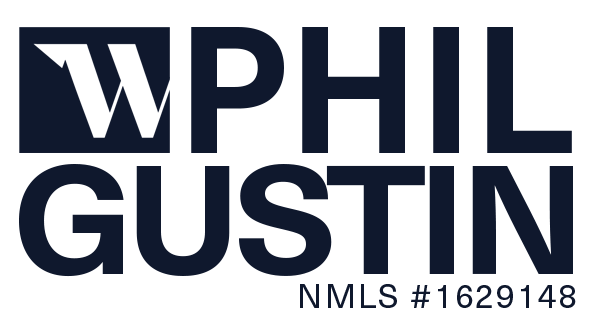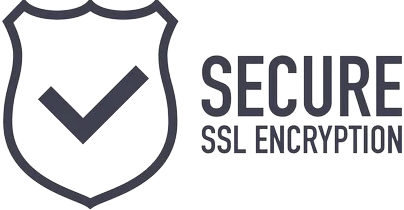Are you self-employed in Boise, ID and need a mortgage?

Self Employed Mortgage Boise ID: A Guide for Business Owners
Boise, ID is a hotbed for entrepreneurs, freelancers and small business owners that make up the backbone of the local economy. The Boise Foothills rise to the northeast, providing a scenic backdrop and adding to the appeal of living in Boise. The Boise River, which drains the city and is integral to the Treasure Valley, plays a significant role in the local economy and lifestyle. Whether you’re a startup, a growing business or a freelancer, self-employment brings freedom and flexibility. But when it comes to getting a mortgage, this freedom can be a challenge. If you’re self-employed and looking to buy or refinance a home in Boise, understanding your options will make the process easier and more successful.
As a mortgage broker with over 15 years experience I help self-employed individuals like you through the mortgage process. In this guide we’ll cover what makes self-employed mortgages different, how you can qualify and why working with an experienced professional can make all the difference.
Understanding Self-Employed Mortgage Loans
Self-employed mortgage loans are tailored specifically for individuals who run their own businesses or work as freelancers. Unlike traditional loans that rely heavily on W-2s and pay stubs, these loans take into account the unique financial situations of self-employed borrowers. Lenders understand that self-employment income can be less straightforward to verify, so they consider alternative forms of documentation. This often includes bank statements and tax returns, which provide a more comprehensive view of your financial health. By evaluating these documents, lenders can better assess your ability to repay the loan, making it possible for self-employed individuals to qualify for a mortgage.
Why Are Self-Employed Mortgages Different?
Getting a mortgage as a self-employed borrower is more complicated than for W-2 borrowers. Most lenders use W-2s and pay stubs to verify income, but self-employed borrowers don’t have those. Instead, lenders must use a more complex set of criteria, including income statements, to evaluate your financial stability.

Qualifying for a Mortgage as a Self-Employed Borrower
Qualifying for a mortgage as a self-employed borrower involves a few extra steps compared to traditional mortgage applicants. Since your income isn’t as easily verifiable, you’ll need to provide additional documentation such as business tax returns, financial statements, and bank statements. Lenders will scrutinize your debt-to-income ratio to ensure you can manage your mortgage payments alongside your other financial obligations. A strong credit score is also crucial, as it demonstrates your reliability as a borrower. Additionally, you might need to provide a larger down payment to offset the perceived risk. While the process may seem daunting, being well-prepared can significantly improve your chances of mortgage approval.
Self-Employed Borrowers Requirements
- Two Years of Tax Returns: Lenders require at least two years of consistent income from your business to show financial stability. Tax returns must show sufficient net income, which can be tough if you’ve taken big deductions to reduce taxable income.
- Profit and Loss Statements: These show a clear picture of your business’s revenue, expenses and profitability, so lenders can better understand your financial situation.
- Higher Credit Scores: Lenders may ask for higher credit scores to offset the risk of variable income. A good credit score can get you better interest rates and loan terms.
- Asset Documentation: Proof of savings, investments or other assets can show lenders you can cover mortgage payments even when income is fluctuating.
Self-Employed Mortgage Options
Lenders recognize the unique needs of self-employed borrowers and consider self-employed income as a key factor when offering loan programs for you. Here are the most common:
1. Bank Statement Loans
- Instead of using tax returns, these loans use 12-24 months of personal or business bank statements to verify income.
- For borrowers whose tax deductions reduce their net income on paper, making it appear lower than it really is.
- Flexible and for entrepreneurs with non-traditional income streams.
2. Non-QM Loans
- Non-Qualified Mortgage (Non-QM) loans for borrowers who don’t meet traditional lending requirements.
- Options include:
- Asset-Based Loans: Qualify based on the value of your liquid assets.
- Interest-Only Loans: Lower initial payments by paying only interest for a specified period.
- Loans Based on Projected Rental Income: For investors buying rental properties.
3. FHA Loans
- Government backed loans for borrowers with lower credit scores or smaller down payments.
- Self-employed borrowers must provide full documentation, tax returns and a history of stable income.
4. DSCR Loans for Investors
- Debt-Service Coverage Ratio (DSCR) loans look at the income potential of the rental property not your personal income.
- For self-employed borrowers looking to invest in Boise’s rental market.

Managing Your Finances as a Self-Employed Borrower
Effective financial management is key when you’re a self-employed borrower looking to secure a mortgage. Start by keeping meticulous records of your income and expenses, as well as your overall business financials. This will make it easier for lenders to verify your income and assess your creditworthiness. Aim to maintain a good credit score by paying your bills on time and keeping your debt-to-income ratio low. This not only improves your chances of getting approved but can also help you secure better loan terms. By staying organized and proactive, you can navigate the mortgage process more smoothly.
Gathering Required Documents
Gathering the necessary documents is a critical step in the mortgage application process for self-employed borrowers. You’ll need to provide a range of documentation, including business tax returns, financial statements, and bank statements. Pay stubs, if available, can also be useful. Additionally, if you have rental income, you’ll need to provide statements to verify this. In some cases, asset-based loan documents may be required. Working with a lender who understands the unique needs of self-employed borrowers can make this process much easier, as they can guide you through the specific documentation requirements.
Self-Employed Borrower Tips in Boise
Getting a mortgage as a self-employed borrower takes extra work but with the right approach you can be successful. Boise State University, a notable landmark to the south of downtown Boise, plays a significant role in the local community, impacting the area both academically and socially.
1. Get Your Ducks in a Row
- Keep your financial records up to date, tax returns, profit and loss statements and bank statements.
- Work with an accountant to make sure your documents show consistent and healthy income.
2. Build and Maintain Good Credit
- Pay down debt, make all payments on time and fix any errors on your credit report.
- Aim for a credit score of 700 or higher to qualify for better loan terms.
3. Save for a Bigger Down Payment
- A bigger down payment reduces the lender’s risk and makes it easier to get approved.
- It may also help you get a lower interest rate and save you money in the long run.
4. Reduce Tax Deductions Temporarily
- While deductions lower your taxable income, they also lower the income lenders see on your tax returns.
- Consider reducing deductions for a year or two to show higher qualifying income.
5. Work with a Specialist
- Partner with a mortgage broker who knows self-employed loans to get the best options and avoid the headaches.
Finding the Right Lender
Finding the right lender is essential for self-employed borrowers. Look for lenders who specialize in self-employed mortgage loans and have experience working with borrowers who have unique financial situations. Lenders offering asset-based loans, bank statement loans, and other alternative loan options can be particularly beneficial. Additionally, consider working with a mortgage broker who can help you navigate the loan process and find the best options for your needs. A knowledgeable broker can connect you with lenders who understand the intricacies of self-employment income, making the mortgage process smoother and more efficient.
Why Phil Gustin in Boise, ID?
My goal is to make the mortgage process simple and provide personalized solutions that fit your financial goals. I have extensive knowledge of West Boise, a significant hub featuring Boise Towne Square Mall, various restaurants, and residential developments. This local expertise ensures I can offer the best advice and options for your mortgage needs.
How I Can Help:
- Custom Solutions: Whether you need a bank statement loan, DSCR loan or non-QM loan I’ll create the right mortgage plan for you.
- Expert Guidance: 15+ years' experience, 300+ clients, 150+ 5 star reviews I’m a trusted expert who will walk you through the whole process.
- Local Market Expertise: Based in Boise I have local knowledge that will help you succeed.
- Competitive Programs: I have unique programs like my 5% Down Jumbo ARM Loan Program and Investor Reverse 1031 Loans to maximize your investment.
Self-Employed Homebuyers in Boise
Boise is a great place for self-employed professionals, growing economy, small business community and affordable housing compared to many other cities. Whether you’re buying a family home, investing in rental properties or refinancing your current mortgage Boise has something for everyone.
Contact Us
First time homebuyer, seasoned investor or refinancing your current home I can help you through the self-employed mortgage process. Don’t let the complexity or the fluctuating income stop you from achieving your homeownership goals.
Call me today to schedule a appointment and let’s get started on getting you the right mortgage for you in Boise, ID.








